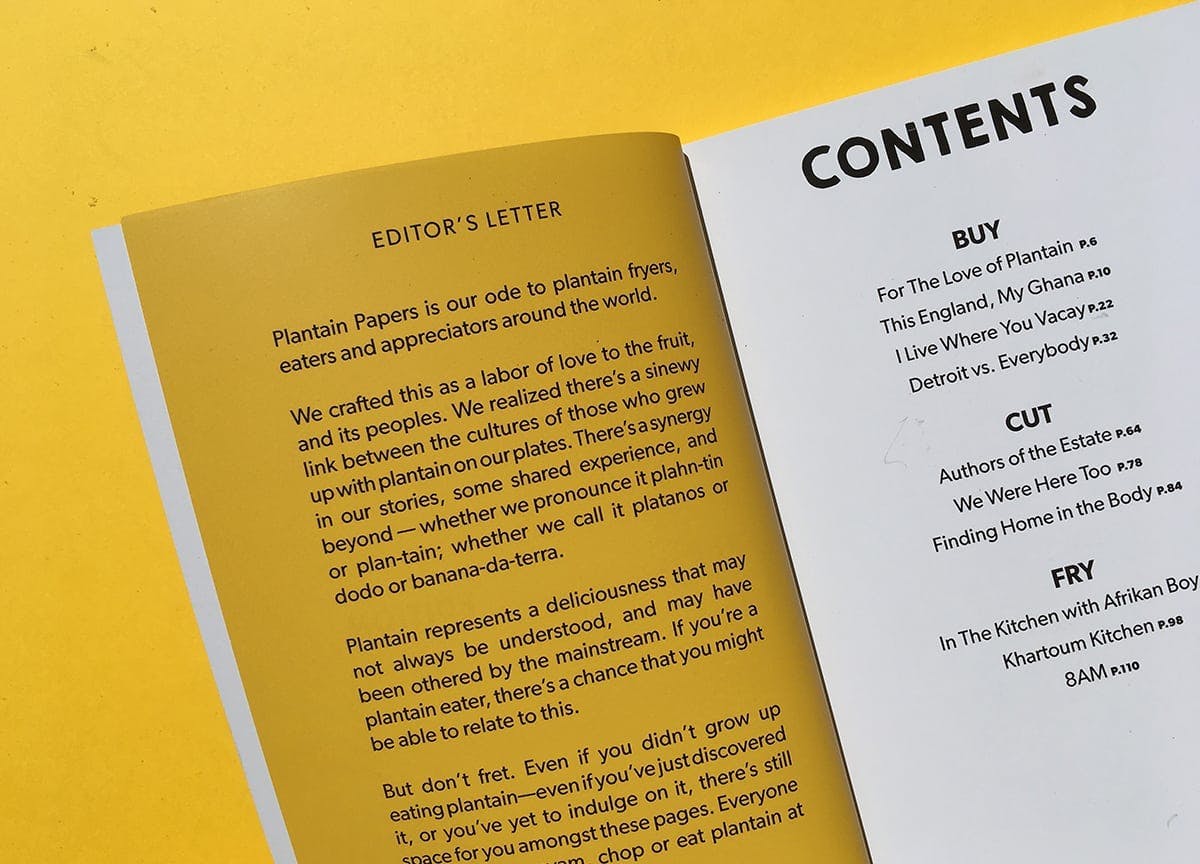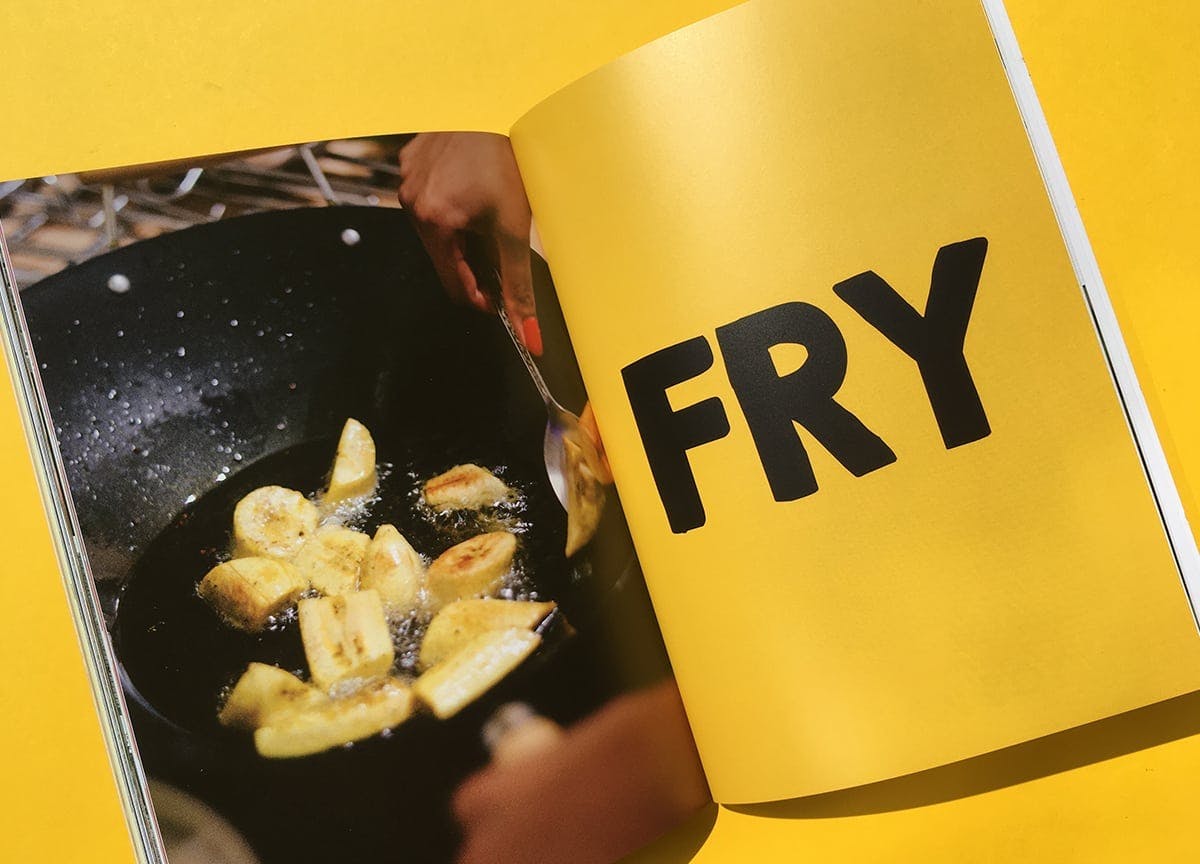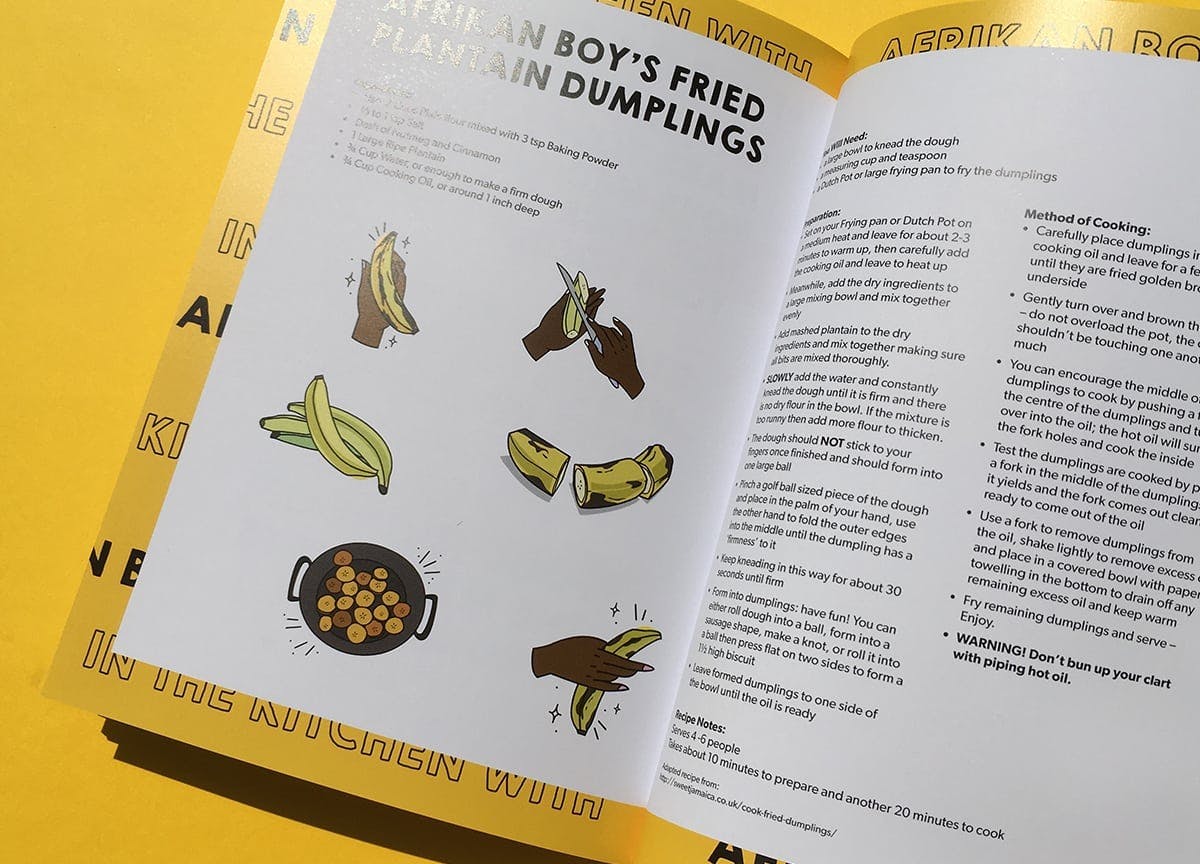Plantain Papers goes out to the fryers, eaters and appreciators of the fruit
The Stack office gets sent magazines every day, and huddling around the pile to tear into each envelop is one of the highlights of my day. Plantain Papers came to us this way, an A5-ish first issue brimming with stories from plantain eaters and appreciators around the world.
As you’ll learn in our interview with editors Lemara Lindsay-Prince and Tamika Abaka-Wood below, the plantain is more than just a fruit loved by many — it acts as a tasty, versatile conduit for accessing a spectrum of personal histories of those belonging to the Caribbean and African diaspora. From Bumble daters to poets, we talk to Plantain Papers about shining a light on their own narrative.
Plantain Papers is just as much about the fruit as it is about the people who eat it. Why did you want to start this magazine?
Lemara: Definitely, it’s an ode to both! We wanted to create something that shone a light on the delicious and staple fruit, which we grew up with and can’t live without, as well as celebrate and explore how it weaves between different cultures and the wider diaspora. Whether you call it plantain, platonos, dodo, banana de terra and you use it to make tostones, mofongo or matoke, plantain nourishes you, the same way good conversation would.
We started the magazine because we felt there was still space for us, in a sea of amazing black and brown independent publications such as Belly Full, Caricom, OOMK, Skin Deep, and gal-dem, just to name a few, and we wanted to be amongst the people championing new narratives. Also, because our backgrounds all clamber into a big wide pot that is the ‘creative industries’ it was important for us to create something outside of work, where we could fully own its inception, creation and production as opposed to getting any external sign off and have our voices edited in someway.
Tamika: Plantain is the most peng, accessible and dynamic fruit that belongs to the diaspora. These are also the traits of the journal: pengness, accessibility and dynamism. The driving force behind many of our professional and personal pursuits is to connect with people, so creating a physical community of plantain-eaters and appreciators who have space amongst these physical pages, and the world at large, is of paramount importance to us.
Issue one begins with a hilarious and strangely empowering story, dividing potential Bumble dates into plantain eaters and everyone else (above). Can you talk a bit this feature?
Tamika: We started Plantain Papers by getting together for two days in Brooklyn vibesing and eating plantain, of course. The three of us chatted, laughed and shared our unfiltered stories and experiences of what it’s like to move through life as us. This was our springboard for creating the vision for Plantain Papers. Our co-editor Tahirah’s piece represents what we’re all about: Bumble is set up for users to engage with it in a very particular way, but she flipped the script and navigated through the dating app exactly how she saw fit.
Tell us about Authors of the Estate (below), and what you learned from speaking with the poets behind that project.
Tamika: They taught me the etymology and power behind the word author. They taught me to make every single decision based on purpose. They taught me that it is perfectly fine not know all the answers right away when bringing your baby to life. Spending that Sunday with them in St Raph’s felt like one of those rare moments where you’re in exactly the right place, at the right time with the right people.
Lemara: The Authors collective (Andre, Nathaniel, Jade and more) challenged the mythology they read and hear about their home by telling their own story through what they know and what they have experienced. The other incredible thing was that they distributed their publication for free, through the letterboxes of each of the residents on St Raphael’s Estate. It taught me to not be precious with what we create, and to give full ownership over to the readers of Plantain Papers.







